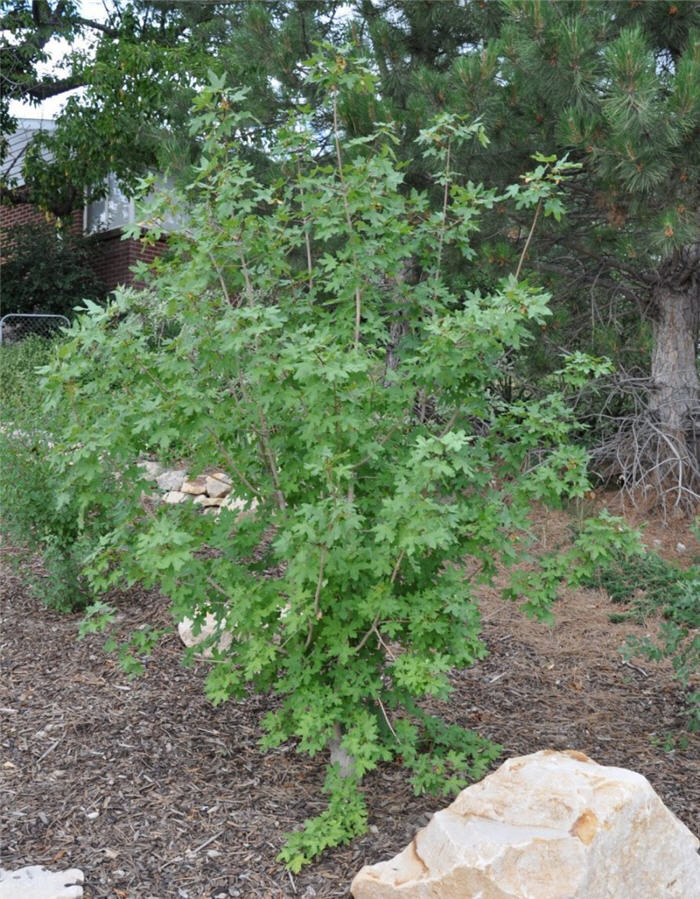| Botanical Name: Acer grandidentatum | |
| Common Name: Bigtooth Maple |

-
Anatomy
-
Culture
-
Design
Plant Type
Tree, Shrub
Height Range
12-25', 25-40'
Flower Color
Green
Flower Season
Spring
Leaf Color
Dark Green
Bark Color
Grey
Fruit Color
Red
Fruit Season
Summer
Sun
Full, Half
Water
Very Low
Growth Rate
Moderate
Soil Type
Loam, Rocky, Unparticular
Soil Condition
Average, Rich, Poor, Well-drained, Dry
Soil pH
Neutral, Basic
Adverse Factors
n/a
Design Styles
Mediterranean, Ranch, Spanish, Native Garden, Woodland
Accenting Features
Multi-trunk Tree
Seasonal Interest
Summer, Fall
Location Uses
Background, Entry, Shrub Border, Parking Strip
Special Uses
Hedge, Screen, Shade Tree, Small Spaces
Attracts Wildlife
n/a
Information by: Stephanie Duer
Photographer:
Photographer:
-
Description
-
Notes
This Utah native is an attractive tree well suited to our urban landscape. It grows 20 to 30 feet tall and about 20 to 25 feet wide. Large dark green leaves have 3 to 5 rounded lobes, and leaves turn yellow, orange, or red in autumn. Inconspictuous light green flowers in spring are followed by small reddish-tan sumara (those little helicopters). Bark is grayish with plate-like scales. Use as a large shrub or small tree; ideal as a patio tree or for screening.
Grow in full sun, though it will tolerate part shade. Good drainage is a must, and otherwise is unparticular about soil. Water regularly to establish, and then only periodically. Prune selectively to shape or raise canopy, but avoid shearing as that will result is weak, twiggy growth. It tolerates soil higher in pH than other maples, and needs little water once established. There are some lovely specimens at the Greater Avenues Water Conservation Demonstration Garden - and after a few years of establishment watering they are now rarely irrigated.